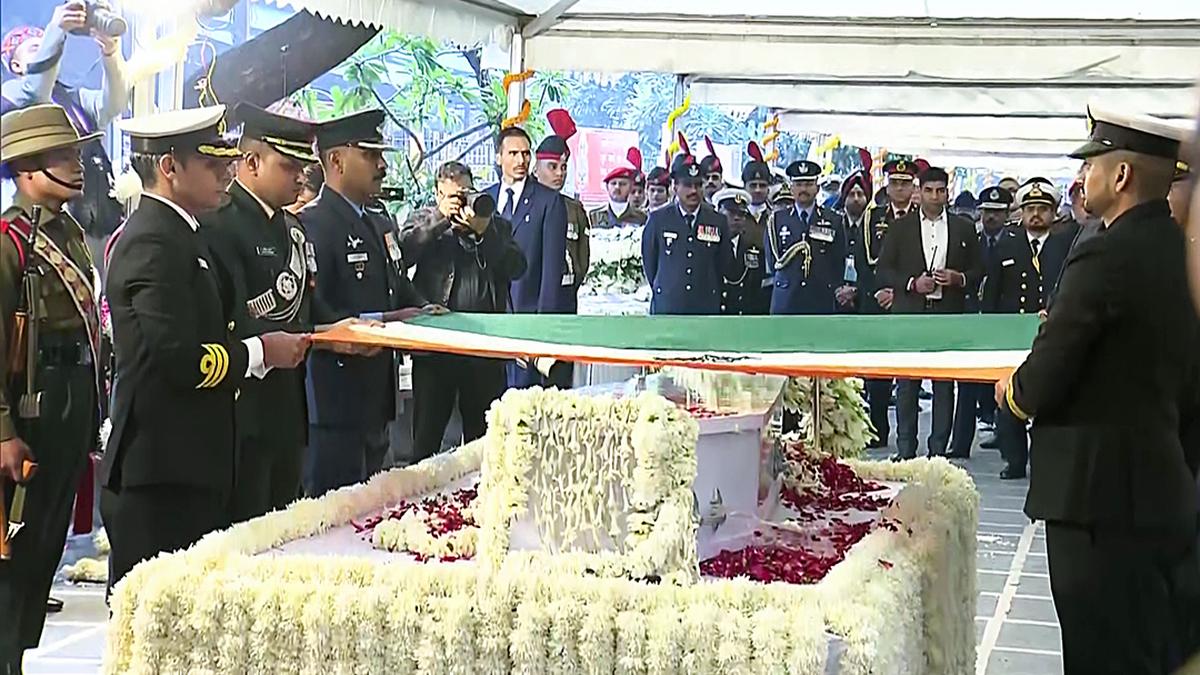 |
|
The death of former Indian Prime Minister Manmohan Singh has sparked a bitter political feud between the ruling Bharatiya Janata Party (BJP) and the Indian National Congress. BJP president J.P. Nadda launched a scathing attack against the Congress, accusing them of hypocrisy and opportunism in their handling of Singh's passing. Nadda's critique centers around the Congress's allegations that the government insulted Singh by not providing a separate cremation space, a claim that Nadda vehemently refutes. The heart of Nadda's argument rests on the assertion that the Congress party demonstrated a consistent lack of respect for Singh during his lifetime, a stark contrast to their post-mortem expressions of grief and outrage. This accusation raises critical questions about the nature of political alliances and the sincerity of public mourning in the highly charged arena of Indian politics. The controversy highlights the long-standing tensions between the two parties and the often-explosive nature of political discourse in India.
Nadda's accusations are multifaceted, encompassing various instances where he believes the Congress party failed to adequately honor Singh. He points to Sonia Gandhi's role as a de facto 'super PM' during Singh's tenure, suggesting that this undermined Singh's authority and dignity as the elected prime minister. Furthermore, Nadda recalls Rahul Gandhi's public rejection of an ordinance passed during Singh's government, an action he portrays as a direct insult to the Prime Minister. By citing these historical events, Nadda seeks to paint a picture of systematic disrespect that belies the Congress's current expressions of sorrow. The strategic use of these past events is a powerful tactic in the political battle, aiming to discredit the Congress's claims of genuine concern for Singh's memory and legacy.
The BJP's defense hinges on the assertion that the government did, in fact, make provisions for a memorial for Manmohan Singh. Nadda emphasizes that this decision was communicated to Singh's family, further undermining the Congress's accusations of neglect. He also highlights the BJP government's establishment of a memorial for former Prime Minister P.V. Narasimha Rao, contrasting it with the Congress's alleged refusal to facilitate a similar memorial during Sonia Gandhi's leadership. This comparison serves as a potent counter-narrative, portraying the BJP as the party that respects the legacies of past leaders, irrespective of political affiliations. The strategic deployment of these facts attempts to shift the narrative away from criticisms of the current government's handling of Singh's cremation and towards a broader discussion of the Congress's record on honoring its own past leaders.
The controversy surrounding Manmohan Singh's funeral underscores the complex and often fraught relationship between politics and mourning. The clash between the BJP and Congress highlights the extent to which political maneuvering can permeate even the most solemn occasions. The accusations of hypocrisy and opportunism raise questions about the authenticity of political pronouncements and the motivations behind public displays of grief. This event provides a case study in how political differences can overshadow personal tributes, leaving a lasting impact on the public perception of both parties involved. The debate is likely to continue, shaping the narrative surrounding Manmohan Singh's legacy and further influencing the dynamics between the BJP and Congress in the coming political landscape.
The incident also brings forth a larger discussion about the treatment of past leaders and the importance of preserving their memory appropriately. The differing approaches adopted by the BJP and Congress reflect varying perspectives on how political figures should be remembered and honored after their deaths. This debate extends beyond the immediate political implications, engaging broader questions about national memory, historical narratives, and the delicate balance between political differences and respectful commemoration. The continuing discourse surrounding this issue will likely influence how future leaders are remembered and how their legacies are framed in the political sphere.
Source: Congress did not respect Manmohan Singh in life, politicising his death: Nadda
